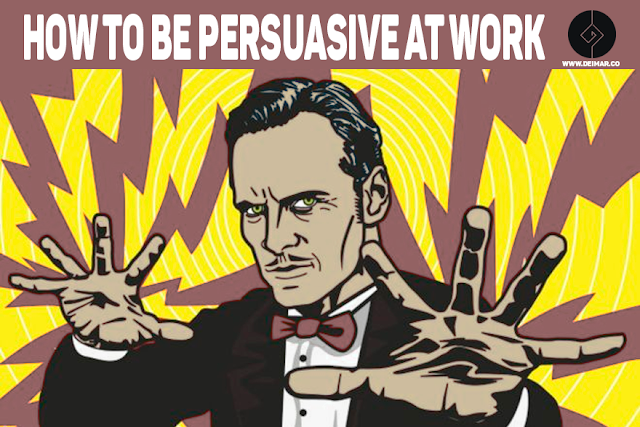What you can achieve alone does not compare to what you can achieve with the help of others. That is why, the better your ability to influence others, the more you can achieve in life.
Often at work, getting results depends on garnering support from outside your department and being able to persuade others to buy into your ideas. That said, it doesn’t matter how smart and skilled you are, if you don’t know how to persuade and influence others, you won’t get results, and you will eventually become irrelevant.
Humanity recognizes the importance of persuasion and has studied this subject for centuries; however, we still have much to learn.
Whether you prefer to apply the millenary Aristotle hints on how to be persuasive, or modern techniques based on body language. All of these tips have something in common: Persuasion it's all about how you deliver the message.
(I will quickly describe the techniques mentioned, then conclude with what I think really makes the difference).
Aristotle tells us that to be persuasive, we must connect to a listener on 3 levels: Logos, Ethos, and Pathos. This basically means you need to deliver a message that makes sense to your audience; they need to trust you, and you need to create the right emotional environment, so they are ready to listen to what you want to say.
You may also use body language techniques to build rapport. These techniques include mirroring/matching your audience's body language, changing the volume and speed of your voice to suit the person you are speaking with, and others. If used well, these techniques can make the other person feel very comfortable around you, as you both are so much alike, which ultimately translates into less resistance to listening to/accepting your ideas.
I do not like these techniques. First, interactions become methodical, manipulative, and inauthentic. Second, you can get a person to accept your idea even if you are wrong. Finally, they focus too much on others, when you are the most important. You are one of the ideas. You are the one that wants to be heard.
A powerful and memorable message needs to be delivered with passion and authenticity.When we constantly think about what others will think or say about our idea, we forget why something matters to us. Therefore, we cannot deliver our message with confidence, as it lacks passion.
Stop telling others why they should care, and start telling them why you care about it. This change will help your audience to stop feeling that you are begging for their attention, and start thinking about why you are so confident about it, and if they should get in the same boat.
Moreover, your audience will feel it was their own decision to support your idea, those they are ready for the consequences.



